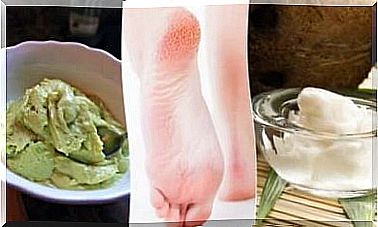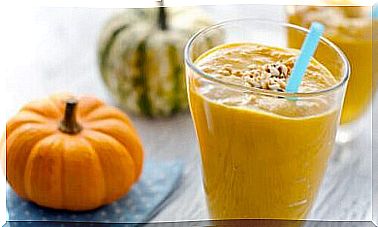Elderberry Syrup: Benefits, Care And Preparation
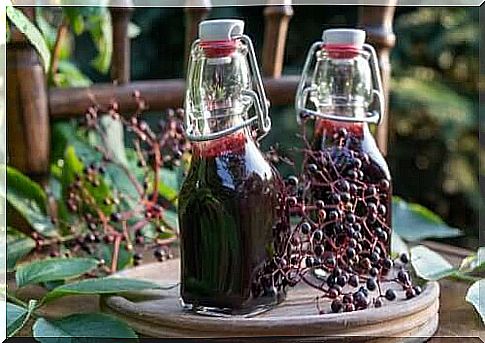
Elderberry syrup is a preparation made from the fruit of this plant. The elderberry (Sambucus nigra ) is a tree that is between four and five meters tall. It has brownish leaves and yellowish-green flowers. The fruit is dark, purplish in color, almost black.
Its leaves, flowers and fruits are used for medicinal purposes in traditional botany. In particular, the syrup Elderberry has been used to treat diseases of the respiratory tract . What else is it for? How is it prepared? Keep reading to find out!
Benefits of Elderberry Syrup
The chemical composition of the elderberry plant, flowers and fruits has not been fully determined so far. However, several nutrients (carbohydrates, proteins, fats, minerals and vitamins) and compounds were identified in it:
- Alkaloids.
- Citric acid.
- Flavonoids.
- Polyphenols.
- Cyanogenetic glycoside (cyanide generator).
In general, elderberry syrup is used as an adjunct to combat various symptoms associated with the respiratory tract. For example, when there is an increase in mucous secretion, stuffy nose, asthma attacks, laryngitis, cough, among others.
Several studies have tried to verify the effectiveness of this preparation for the treatment of various diseases. And, in fact, it was observed that patients with flu symptoms who received daily doses of the product showed symptoms of improvement, even without other types of medications.
Furthermore, other studies suggest that this plant can also be used as a support agent against the common cold. People who had to take continental air travel and consumed elderberry extract were less likely to suffer from colds. Likewise, its duration, as well as the intensity of symptoms, was significantly shorter.
As if that wasn’t enough, recent researches have discovered antibacterial, antiviral, antitumor, antilipidic and even antidepressant properties in elderberry.
Thus, this plant and its fruits have potential as a complement for the treatment of diabetes, obesity, various metabolic disorders and even urinary system problems.
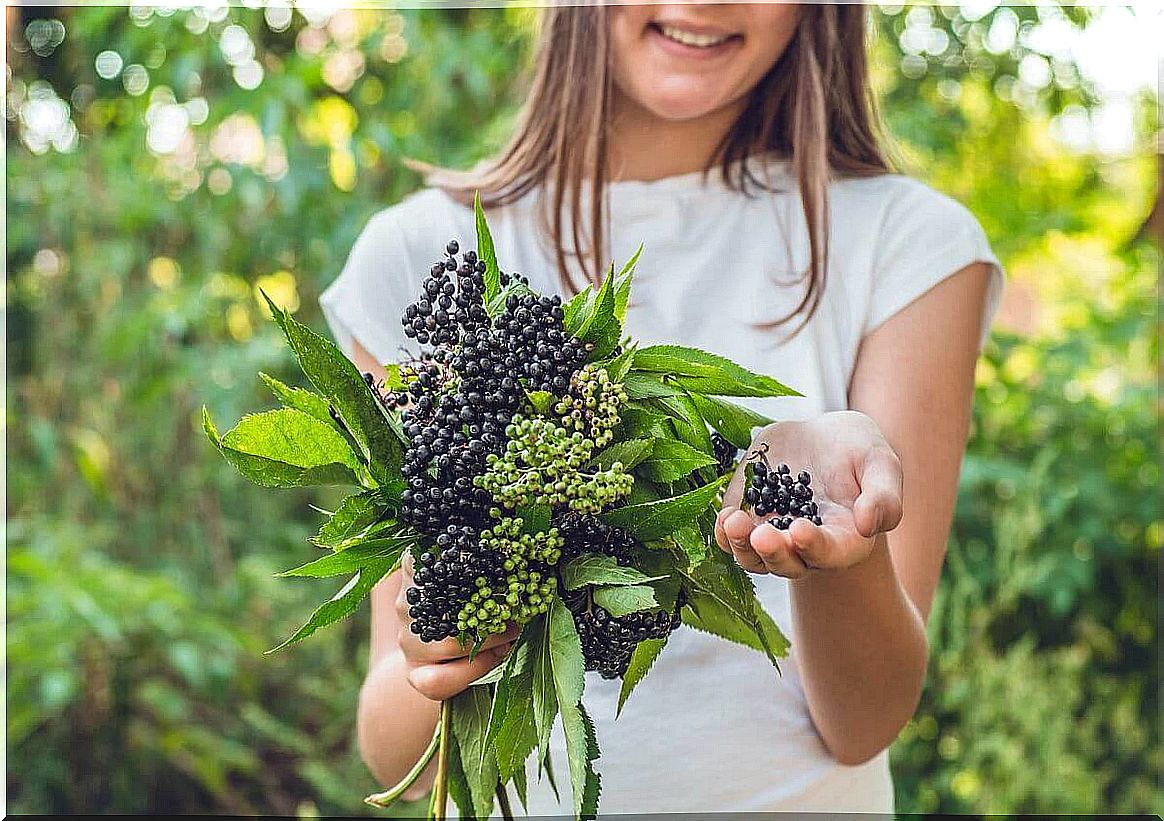
Precautions in the consumption of elderberry syrup
According to the above, elderberry syrup seems not only to be efficient, but also safe and even profitable in the treatment of various diseases. However, all these findings have yet to be confirmed in larger studies, and the risks and possible side effects of their use also need to be evaluated.
In this sense, it is necessary to be careful when consuming elderberry syrup and not to exceed the indicated doses. Higher doses can have drastic effects as elderberry is also a strong laxative as well as a powerful diuretic. Therefore, it cannot be combined with other products or medications with similar effects.
Also, consuming uncooked fruit or uncooked flowers can cause nausea, vomiting, and even severe poisoning. Both the husk and the seeds and the fruits, when unripe, contain substances known as lectins, which can cause stomach problems.
It should also not be forgotten that branches, leaves, roots and seeds are potentially toxic due to the mentioned cyanogenetic glycoside. In allergic people, rashes or breathing problems may occur after consuming a product with elderberry or coming into contact with the plant.
Elderberry is not recommended for children and adolescents, pregnant or nursing women. Although there is no data to guarantee that it is dangerous, there is also no data to confirm that its consumption is safe. Therefore, if you are pregnant or nursing, avoid elderberry products.
Preparation of elderberry syrup
Elderberry syrup can be purchased ready-made; however, it is relatively easy to do. Due to the effects discussed in the previous section, it is essential to be careful when preparing it.
The main ingredient is elderberry. It can be used fresh or dry. The latter is found in markets or herbal products stores. Fresh can be harvested in the field, as long as the plant and ripe fruit are recognized. You should also take precautions in this regard, as there are similar plant species that are toxic.
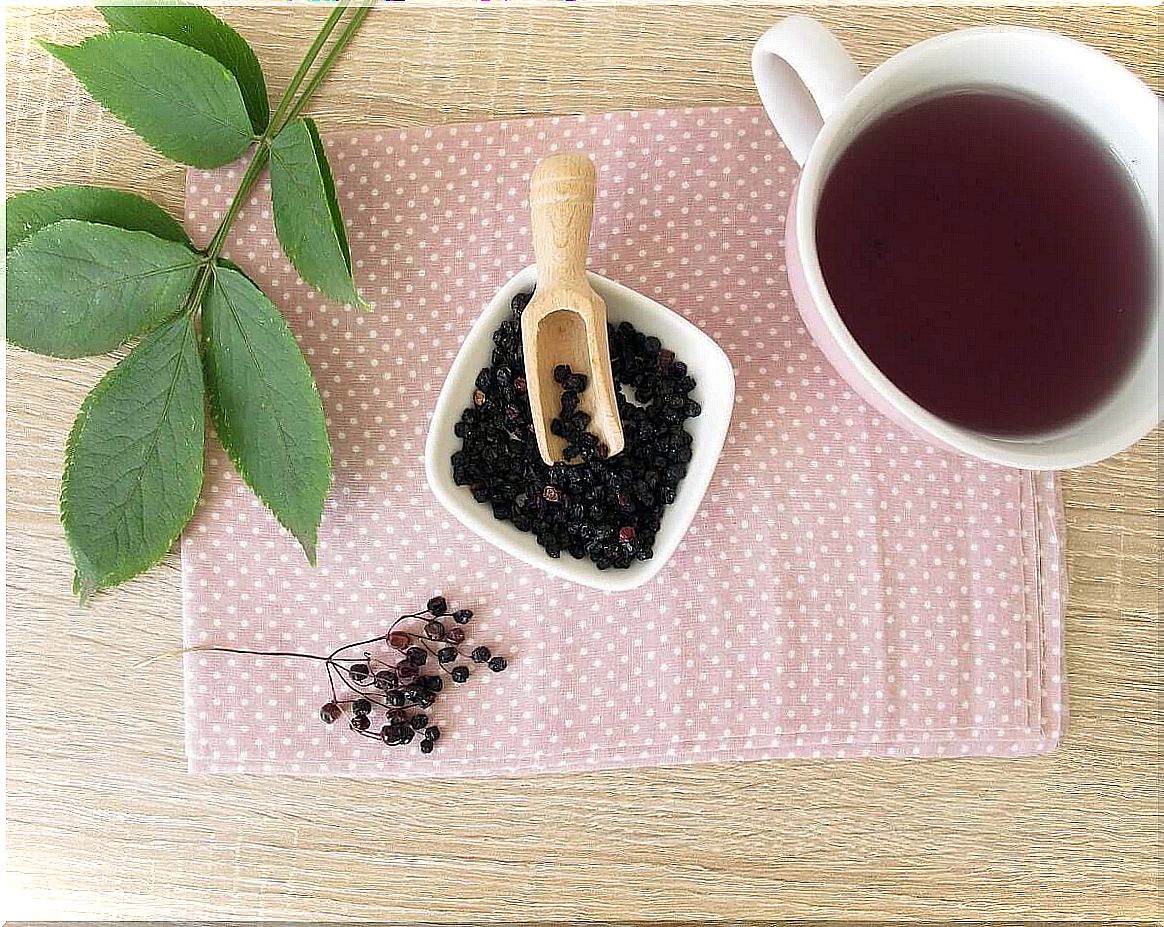
Ingredients
- 2 cups of fruit (if dried) (400 g)
- 4 cups of water (1 liter)
- 1 cup of honey (250 g)
- Ginger root; it can be powdered (20 g).
- Cinnamon, vanilla or cardamom to taste.
- Optionally, you can add a cup of alcoholic beverage such as vodka, although this should not be done if the syrup is for children.
preparation process
- The fruits, ginger and cinnamon (vanilla or cardamom) should be placed on the fire together with water, preferably in a ceramic or glass container.
- When boiling, reduce heat and keep on low heat for 45 minutes.
- Remove and let stand until cool.
- Then strain using a soft tissue. The resulting liquid should be mixed with honey and alcoholic beverages, if applicable.
- Finally, it should be stored in a sterilized glass bottle, in a cool, dry place.
Drink elderberry syrup in moderation
Some natural products and recipes are used by tradition without scientific proof. This is not the case with elderberry syrup, for which research has already been carried out to recognize its virtues and properties.
In any case, it is a product that should be used sparingly, because in excess it can have counterproductive effects. Furthermore, it should only be a supplement to alleviate the symptoms of illnesses, as it is not considered a first-choice treatment.


